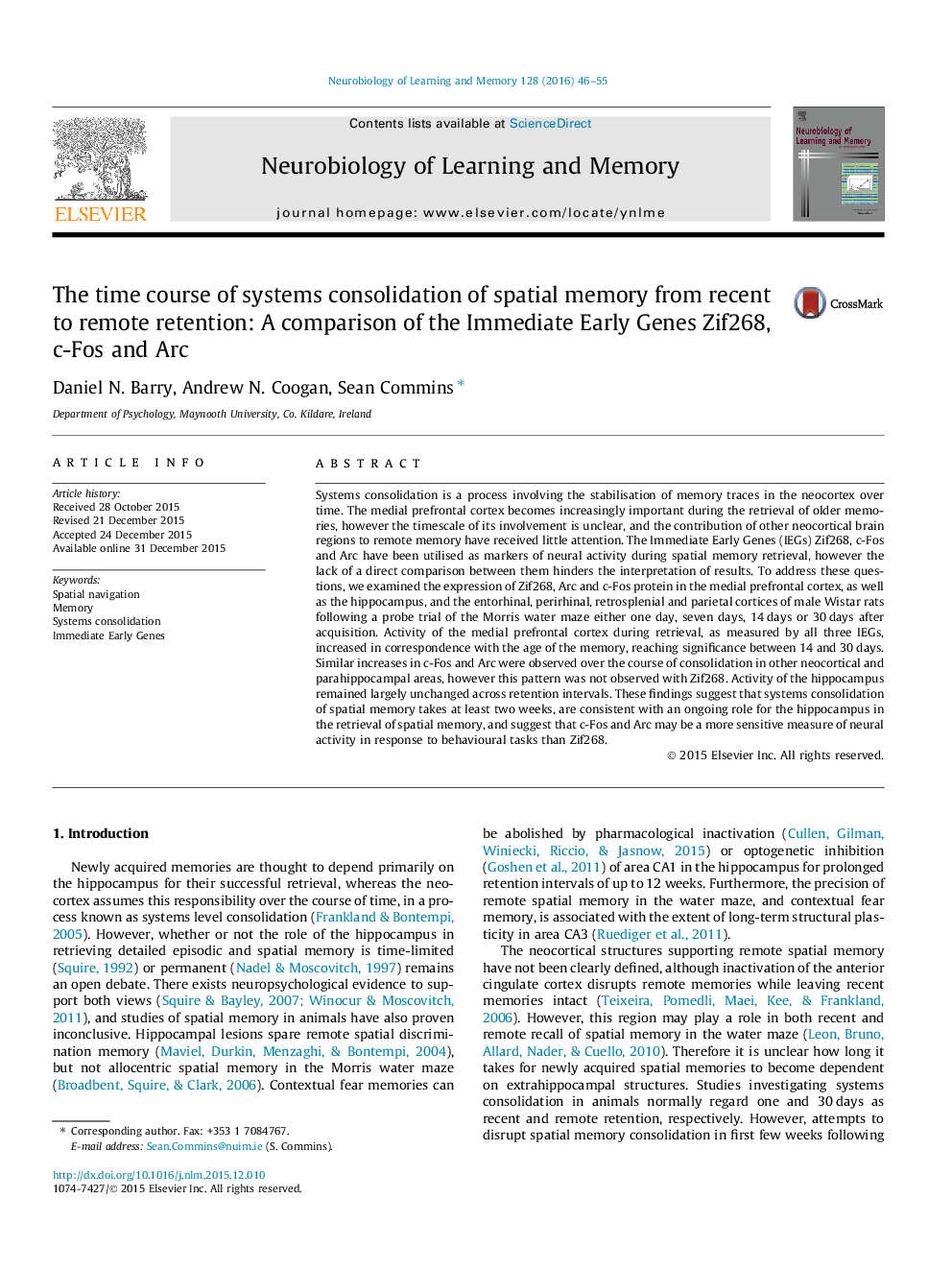| Article ID | Journal | Published Year | Pages | File Type |
|---|---|---|---|---|
| 936492 | Neurobiology of Learning and Memory | 2016 | 10 Pages |
•Neural activity in neocortex during spatial memory retention increases by 14–30 days.•Comparable increases in activity observed over time in all three subregions of medial prefrontal cortex.•Parahippocampal, retrosplenial and parietal cortices also implicated in remote memory.•Activity of the hippocampus remained constant across all retention time-points.•c-Fos and Arc may be more sensitive markers of neural activity than Zif268.
Systems consolidation is a process involving the stabilisation of memory traces in the neocortex over time. The medial prefrontal cortex becomes increasingly important during the retrieval of older memories, however the timescale of its involvement is unclear, and the contribution of other neocortical brain regions to remote memory have received little attention. The Immediate Early Genes (IEGs) Zif268, c-Fos and Arc have been utilised as markers of neural activity during spatial memory retrieval, however the lack of a direct comparison between them hinders the interpretation of results. To address these questions, we examined the expression of Zif268, Arc and c-Fos protein in the medial prefrontal cortex, as well as the hippocampus, and the entorhinal, perirhinal, retrosplenial and parietal cortices of male Wistar rats following a probe trial of the Morris water maze either one day, seven days, 14 days or 30 days after acquisition. Activity of the medial prefrontal cortex during retrieval, as measured by all three IEGs, increased in correspondence with the age of the memory, reaching significance between 14 and 30 days. Similar increases in c-Fos and Arc were observed over the course of consolidation in other neocortical and parahippocampal areas, however this pattern was not observed with Zif268. Activity of the hippocampus remained largely unchanged across retention intervals. These findings suggest that systems consolidation of spatial memory takes at least two weeks, are consistent with an ongoing role for the hippocampus in the retrieval of spatial memory, and suggest that c-Fos and Arc may be a more sensitive measure of neural activity in response to behavioural tasks than Zif268.
